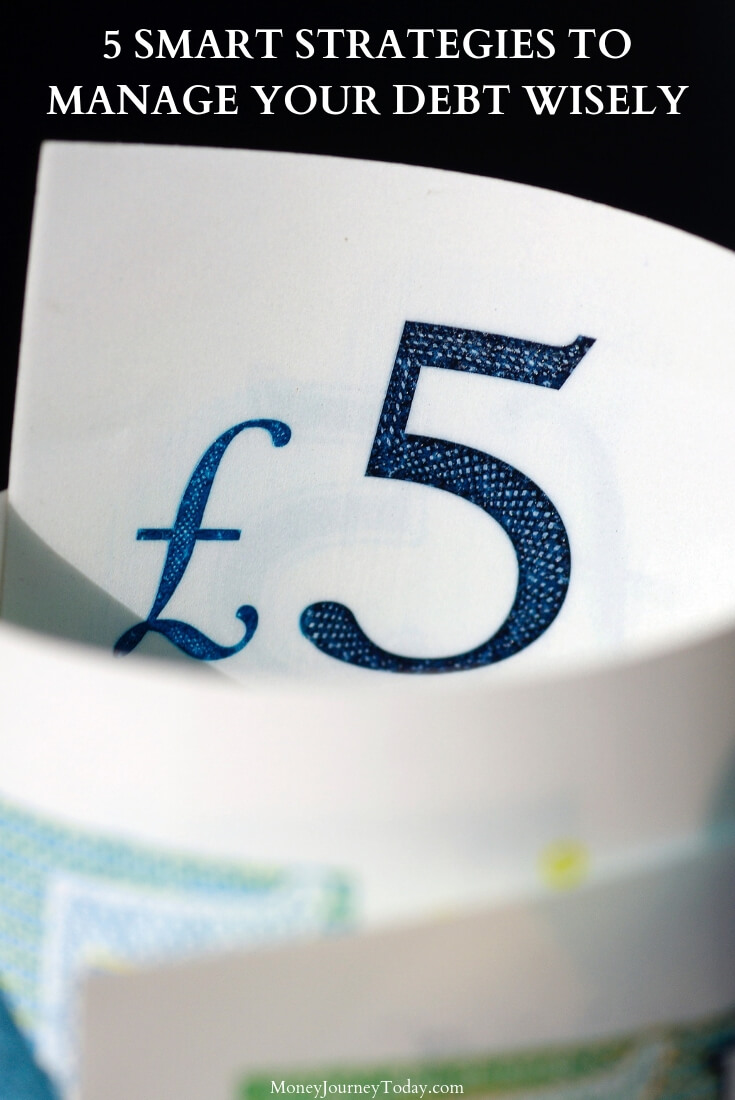If you allow it to, debt can quite easily spiral and before you know it you’ll be buried under mountains of credit card bills and bank loans. It’s a sneaky devil that has taken livelihoods and even taken lives and it will continue to do so unless we all make a concerted effort to get out on top of it and stop that spiral before it starts to gather pace. Here, we’ve collected five of the most sensible and powerful debt management strategies for managing and getting out in front of debt before it becomes a serious and overwhelming problem.

Good or Bad Debt
A bad debt refers to any debt that costs more than the returns that will be generated by the borrowed funds. These are the debts you want to focus on clearing first and foremost. An example of good debt would be a mortgage, as you’re using that loan to buy a long-term home for yourself. An example of bad debt would be credit card debt, as it could not only ruin your credit rating but will accrue more interest the longer you leave it.
Rank Your Bad Debts
Once you’ve sorted the good from the bad, rank your debts and make it your mission to pay off the most heinous debts first. The higher the interest, the higher up the list they should go. Try to ignore the total balance here and focus primarily on the interest. At this point, you might also want to switch current accounts to a bank that specializes in bad credit and debt management.
Make a Plan
Creating a regimented plan that you make a concerted effort to stick to is an incredibly important step towards clearing your debts. Don’t even think about spreading your bad debts. Instead, focus on paying off your worst debts first and then rinse and repeat until all of your bad debts are clear. Then, you can move onto the good debts.
Pay Twice a Month
Whilst it can be tempting to only pay off your debts once a month; if you change up your payment plan and repay bi-weekly then you’ll clear your debts twice as fast. This will force you to manage your expenditures accordingly. Even if you can’t afford to pay twice a week, it’s worth splitting your payments as it can feel daunting to be faced with such a substantial sum at the end of the month. £500 seems far more achievable than £1,000 after all.
Chipping Away
Finally, when it comes to actually repaying your debts, remember that every little chip will eventually lead to a life without debt. So, if you have a little extra money at the end of the month or the end of the week, consider putting it away and using it to chip away at your debts. Even if it seems like an insubstantial amount, you’ll be surprised how quickly those supposedly insubstantial amounts stack up and before you know it you’ll be living debt free!
[…] you struggling with debt and don’t know how to get out of this awful situation? The truth is, we need money to survive […]
Paying twice a month is sound advice. I have 2 personal credit cards with a balance and 1 business credit card. I know some people will say pay off the most expensive first but in my situation my lowest owed actually has the highest interest rate. So I really double down on it but still make more than minimum payment on the other 2. Sometimes I make a payment to that one I’m trying to eliminate first 3 times in one month. I have it set up for auto pay that will make the minimum payment if I happen to forget. I hate it that I have missed on time payments not because I didn’t have the money but things like getting a new debit card and not updating the payment method.